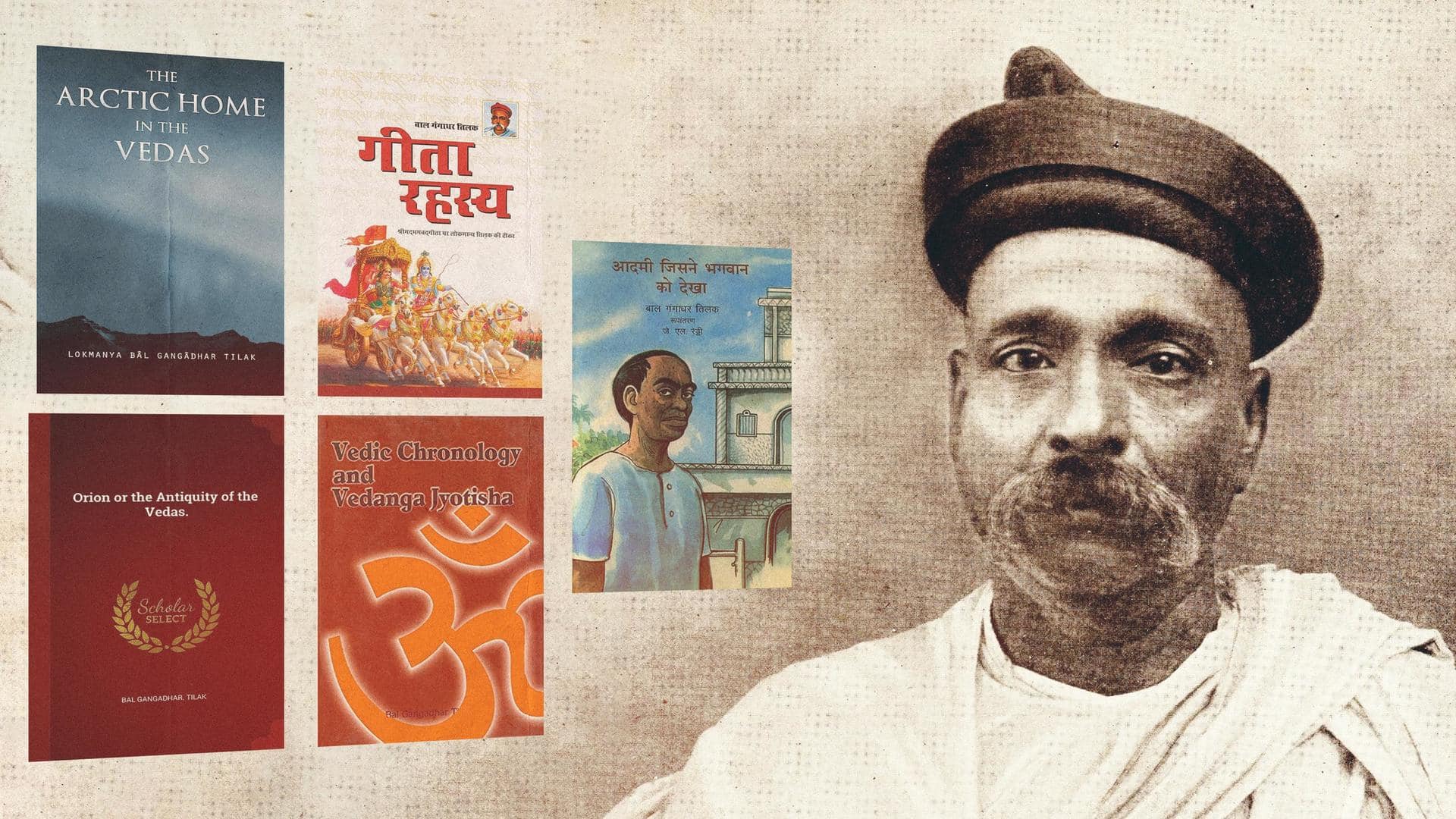
Bal Gangadhar Tilak birth anniversary: Read the nationalist's best books
What's the story
Bal Gangadhar Tilak was born on this day back in 1856 and became one of India's most celebrated nationalists and independence activists.
A teacher and the first leader of the Indian independence movement, he was called "The Father of the Indian Unrest" by the British.
As we observe his birth anniversary today, let's take a look at his best books ever.
Book 1
'The Arctic Home in the Vedas'
This book is about the origin of Aryans and the theory of their living at the North Pole during the pre-glacial period.
Supporting this theory, Tilak brings Vedic hymns, chronologies, and calendars into the limelight through this book.
The legend wrote this book in 1898 and published it in March 1903.
All in all, it is the perfect read for history buffs.
Book 2
'Geeta Rahasya'
If you are interested in reading the Bhagvat Geeta and are looking for a source where you can find the English translations of the shlokas written in Sanskrit, this book by Bal Gangadhar Tilak is what you need.
Besides the translations, he has also presented his take on the holy book and a comparison of Eastern with Western doctrines.
Book 3
'Orion or the Antiquity of the Vedas'
This book is another fantastic treat for history freaks and those keen about reading the chronology of human development.
From history and archeology to astronomy and mythology, the author has covered every bit of them.
The book also shares how India as a country excelled in the past as it presents a scientific study of the pre-independence era.
Book 4
'Man Who Saw God'
Are you a fan of short stories? Well, Man Who Saw God will instantly be your favorite.
This light read is only 31 pages long, so finishing it would only be a matter of a few minutes for avid readers.
However, the book is in Hindi and there aren't any English translations, so check before you buy this one.
Book 5
'Vedic Chronology and Vedanta Jyotisha'
Centuries ago, India came up with Vedic astrology and astronomy that garnered the attention of the West.
It features multiple theories and explores the depths and antiquities of the Indian system of approaching these fields.
So if you are someone willing to go back in time to the roots of the Indian ethos, read this book.
Check out more such book recommendations.